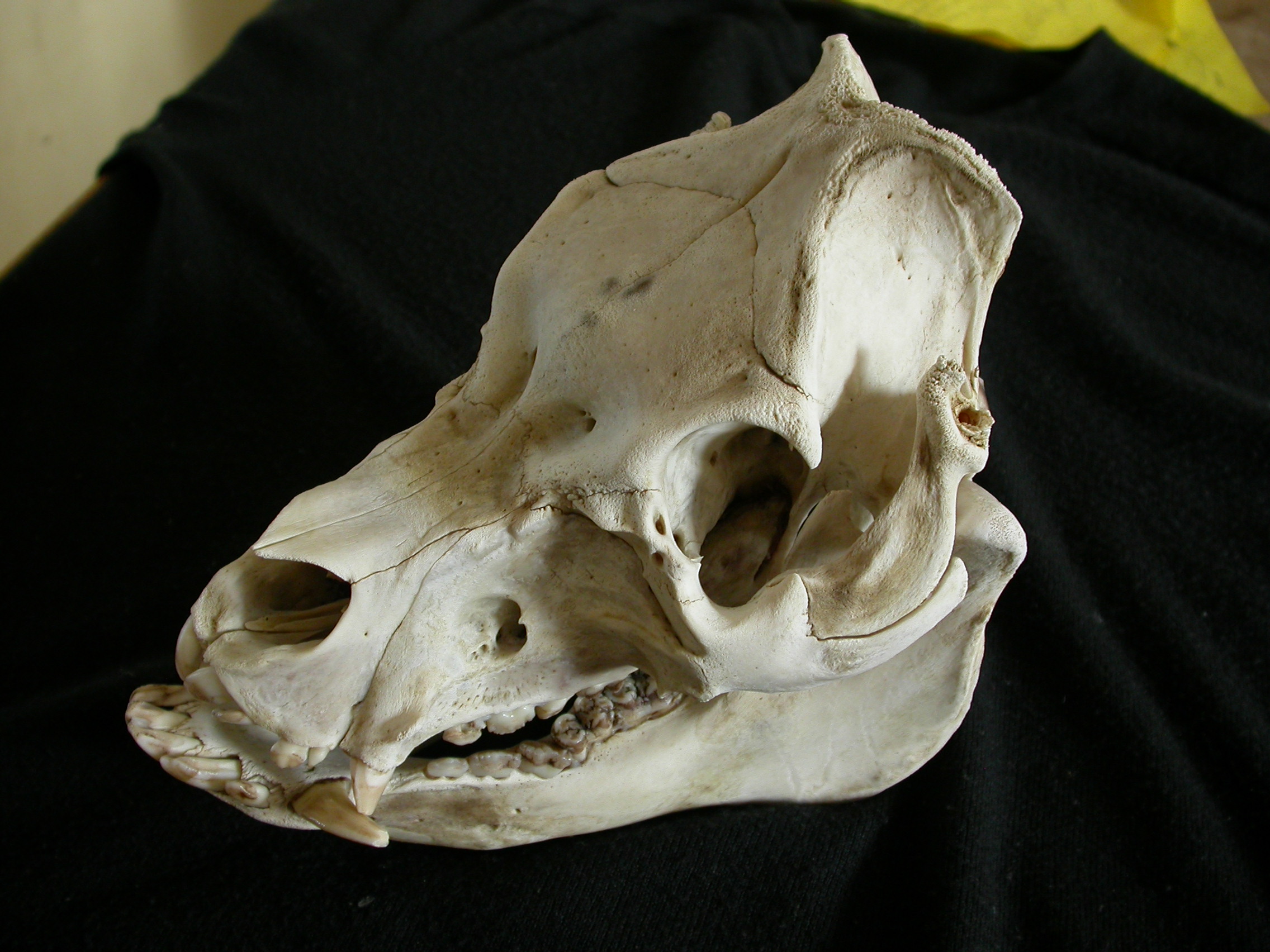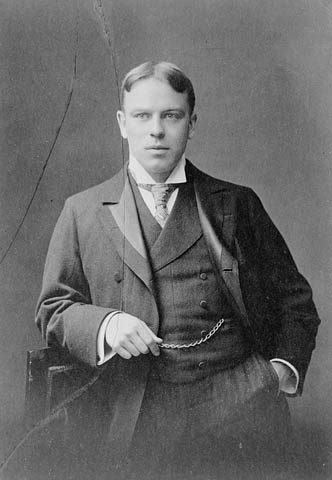|
Motherwell Homestead
The Motherwell Homestead is a National Historic Sites of Canada, National Historic Site of Canada located just south of the community of Abernethy, Saskatchewan. The site commemorates the life and achievements of William Richard Motherwell, Saskatchewan's first minister of agriculture and federal minister of agriculture for the Mackenzie King government. The homestead's fieldstone house, called Lanark Place after Motherwell's previous Ontario home, is modelled after similar farmsteads built in Ontario. The homestead is surrounded by a Windbreak, shelter belt. The 3.59 hectares farmstead, in addition to the main house, includes fields defined by fences and shelter belt shrub and tree lines, and agricultural buildings. Visitors to the park are immersed in 1907 agriculture. The Motherwell house, barn and wikt:outbuilding, outbuildings have been restored to their 1907 appearance. Employees at the park dress in period clothing. During operational months (May 21 to September 1), ... [...More Info...] [...Related Items...] OR: [Wikipedia] [Google] [Baidu] |
Homestead (buildings)
A homestead is an isolated dwelling, especially a farmhouse, and adjacent outbuildings, typically on a large agricultural holding such as a ranch or station. In North America the word "homestead" historically referred to land claimed by a settler or squatter under the Homestead Acts (USA) or Dominion Lands Act (Canada). In Old English the term was used to mean a human settlement, and in Southern Africa the term is used for a cluster of several houses normally occupied by a single extended family. In Australia it refers to the owner's house and the associated outbuildings of a pastoral property, known as a station. See also * Homestead principle * Homesteading * List of homesteads in Western Australia * List of historic homesteads in Australia * Settlement hierarchy A settlement hierarchy is a way of arranging settlements into a hierarchy based upon their population or some other criteria. The term is used by landscape historians and in the National Curriculum for E ... [...More Info...] [...Related Items...] OR: [Wikipedia] [Google] [Baidu] |
Windbreak
A windbreak (shelterbelt) is a planting usually made up of one or more rows of trees or shrubs planted in such a manner as to provide shelter from the wind and to protect soil from erosion. They are commonly planted in hedgerows around the edges of fields on farms. If designed properly, windbreaks around a home can reduce the cost of heating and cooling and save energy. Windbreaks are also planted to help keep snow from drifting onto roadways or yards. Farmers sometimes use windbreaks to keep snow drifts on farm land that will provide water when the snow melts in the spring. Other benefits include contributing to a microclimate around crops (with slightly less drying and chilling at night), providing habitat for wildlife, and, in some regions, providing wood if the trees are harvested. Windbreaks and intercropping can be combined in a farming practice referred to as alleycropping, or being deployed along riparian buffer stripes. Fields are planted in rows of different crops surr ... [...More Info...] [...Related Items...] OR: [Wikipedia] [Google] [Baidu] |
Open-air Museums In Canada
Open air, open-air or openair may refer to: *''Open Air'', a BBC television program *Open-air cinema or outdoor cinema *Open-air concert, a concert taking place outside *Open-air museum, a distinct type of museum exhibiting its collections out-of-doors * Open-air preaching, the act of publicly proclaiming a religious message *Open-air treatment, therapeutic exposure to fresh air and sunshine *Open air school, an outdoor school designed to combat the spread of disease *OpenAIR, a message routing and communication protocol for artificial intelligence systems *Openair Cinemas, an Australasian brand of outdoor cinema events, owned by Pedestrian (company) See also *''Open Air Suit'', a studio album by Air *Open Air PM, a defunct daily newspaper in New York City *OpenAIRE The Framework Programmes for Research and Technological Development, also called Framework Programmes or abbreviated FP1 to FP9, are funding programmes created by the European Union/European Commission to support and ... [...More Info...] [...Related Items...] OR: [Wikipedia] [Google] [Baidu] |
Museums In Saskatchewan
Culture of Saskatchewan views the patterns of human activity in the central Canadian Prairies, prairie province of Canada examining the way people live in the Geography of Saskatchewan, geography, climate, and social context of Saskatchewan. First Nations in Canada, First Nations and fur traders adopted a transhumance and Hunter-gatherer, hunting and gathering lifestyle to fulfill their economic and sustenance needs. Early homesteaders and settlers in the 19th and early 20th centuries likewise spent the majority of their time proving up their homesteads, tilling the land and providing subsistence economy, subsistence agricultural products for their families. The early 20th century developed successful agricultural practices, and society rejoiced in the Roaring Twenties. The depression and drought years of the Dust Bowl, dirty thirties took agricultural sustenance away.Agriculture in Canada Electricity became established throughout the various Saskatchewan regions. The economy saw ... [...More Info...] [...Related Items...] OR: [Wikipedia] [Google] [Baidu] |
National Historic Sites In Saskatchewan
National may refer to: Common uses * Nation or country ** Nationality – a ''national'' is a person who is subject to a nation, regardless of whether the person has full rights as a citizen Places in the United States * National, Maryland, census-designated place * National, Nevada, ghost town * National, Utah, ghost town * National, West Virginia, unincorporated community Commerce * National (brand), a brand name of electronic goods from Panasonic * National Benzole (or simply known as National), former petrol station chain in the UK, merged with BP * National Car Rental, an American rental car company * National Energy Systems, a former name of Eco Marine Power * National Entertainment Commission, a former name of the Media Rating Council * National Motor Vehicle Company, Indianapolis, Indiana, USA 1900-1924 * National Supermarkets, a defunct American grocery store chain * National String Instrument Corporation, a guitar company formed to manufacture the first resonator g ... [...More Info...] [...Related Items...] OR: [Wikipedia] [Google] [Baidu] |
Domestic Pig
The pig (''Sus domesticus''), often called swine, hog, or domestic pig when distinguishing from other members of the genus '' Sus'', is an omnivorous, domesticated, even-toed, hoofed mammal. It is variously considered a subspecies of ''Sus scrofa'' (the wild boar or Eurasian boar) or a distinct species. The pig's head-plus-body length ranges from , and adult pigs typically weigh between , with well-fed individuals even exceeding this range. The size and weight of hogs largely depends on their breed. Compared to other artiodactyls, a pig's head is relatively long and pointed. Most even-toed ungulates are herbivorous, but pigs are omnivores, like their wild relative. Pigs grunt and make snorting sounds. When used as livestock, pigs are farmed primarily for the production of meat, called pork. A group of pigs is called a ''passel'', a ''team'', or a ''sounder''. The animal's bones, hide, and bristles are also used in products. Pigs, especially miniature breeds, are kept as pets ... [...More Info...] [...Related Items...] OR: [Wikipedia] [Google] [Baidu] |
Livestock
Livestock are the domesticated animals raised in an agricultural setting to provide labor and produce diversified products for consumption such as meat, eggs, milk, fur, leather, and wool. The term is sometimes used to refer solely to animals who are raised for consumption, and sometimes used to refer solely to farmed ruminants, such as cattle, sheep, goats and pigs. Horses are considered livestock in the United States. The USDA classifies pork, veal, beef, and lamb (mutton) as livestock, and all livestock as red meat. Poultry and fish are not included in the category. The breeding, maintenance, slaughter and general subjugation of livestock, called '' animal husbandry'', is a part of modern agriculture and has been practiced in many cultures since humanity's transition to farming from hunter-gatherer lifestyles. Animal husbandry practices have varied widely across cultures and time periods. It continues to play a major economic and cultural role in numerous communities. Lives ... [...More Info...] [...Related Items...] OR: [Wikipedia] [Google] [Baidu] |
Barn At Abernathy
A barn is an agricultural building usually on farms and used for various purposes. In North America, a barn refers to structures that house livestock, including cattle and horses, as well as equipment and fodder, and often grain.Allen G. Noble, ''Traditional Buildings: A Global Survey of Structural Forms and Cultural Functions'' (New York: Tauris, 2007), 30. As a result, the term barn is often qualified e.g. tobacco barn, dairy barn, cow house, sheep barn, potato barn. In the British Isles, the term barn is restricted mainly to storage structures for unthreshed cereals and fodder, the terms byre or shippon being applied to cow shelters, whereas horses are kept in buildings known as stables. In mainland Europe, however, barns were often part of integrated structures known as byre-dwellings (or housebarns in US literature). In addition, barns may be used for equipment storage, as a covered workplace, and for activities such as threshing. Etymology The word ''barn'' comes ... [...More Info...] [...Related Items...] OR: [Wikipedia] [Google] [Baidu] |
Mackenzie King
William Lyon Mackenzie King (December 17, 1874 – July 22, 1950) was a Canadian statesman and politician who served as the tenth prime minister of Canada for three non-consecutive terms from 1921 to 1926, 1926 to 1930, and 1935 to 1948. A Liberal, he was the dominant politician in Canada from the early 1920s to the late 1940s. King is best known for his leadership of Canada throughout the Great Depression and the Second World War. He played a major role in laying the foundations of the Canadian welfare state and established Canada's international reputation as a middle power fully committed to world order. With a total of 21 years and 154 days in office, he remains the longest-serving prime minister in Canadian history. Born in Berlin, Ontario (now Kitchener), King studied law and political economy in the 1890s and became concerned with issues of social welfare. He later obtained a PhD – the only Canadian prime minister to have done so. In 1900, he became deputy minister ... [...More Info...] [...Related Items...] OR: [Wikipedia] [Google] [Baidu] |
Abernethy No
Abernethy may refer to: Places Scotland * Abernethy, Perth and Kinross, a village ** Abernethy (NBR) railway station, a former railway station in this village * Nethy Bridge, Highland, a village formerly known as Abernethy * Abernethy Forest, a forest and national nature reserve * Presbytery of Abernethy, part of the Church of Scotland Elsewhere * Abernethy, New South Wales, Australia, a town * Rural Municipality of Abernethy No. 186, Saskatchewan, Canada ** Abernethy, Saskatchewan, a village * Abernethy Flats, a gravel plain in Antarctica Other uses * Abernethy (surname) * Lord of Abernethy, a Scottish title of nobility * Abernethy (charity) * Abernethy Road, in Hazelmere, Perth, Western Australia * Abernethy Bridge, Oregon, United States spanning the Willamette River * Abernethy biscuit, developed by London surgeon John Abernethy * ''Abernethy v Mott, Hay and Anderson ''Abernethy v Mott, Hay and Anderson'' 974ICR 323 is a UK labour law case, concerning unfair dismissal. ... [...More Info...] [...Related Items...] OR: [Wikipedia] [Google] [Baidu] |
Agriculture
Agriculture or farming is the practice of cultivating plants and livestock. Agriculture was the key development in the rise of sedentary human civilization, whereby farming of domesticated species created food surpluses that enabled people to live in cities. The history of agriculture began thousands of years ago. After gathering wild grains beginning at least 105,000 years ago, nascent farmers began to plant them around 11,500 years ago. Sheep, goats, pigs and cattle were domesticated over 10,000 years ago. Plants were independently cultivated in at least 11 regions of the world. Industrial agriculture based on large-scale monoculture in the twentieth century came to dominate agricultural output, though about 2 billion people still depended on subsistence agriculture. The major agricultural products can be broadly grouped into foods, fibers, fuels, and raw materials (such as rubber). Food classes include cereals (grains), vegetables, fruits, cooking oils, meat, milk, ... [...More Info...] [...Related Items...] OR: [Wikipedia] [Google] [Baidu] |





